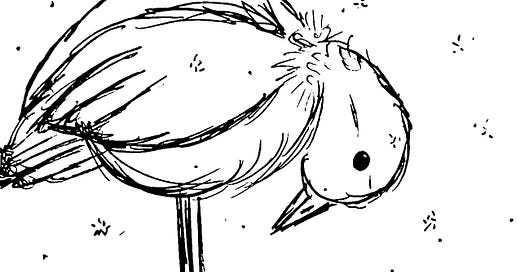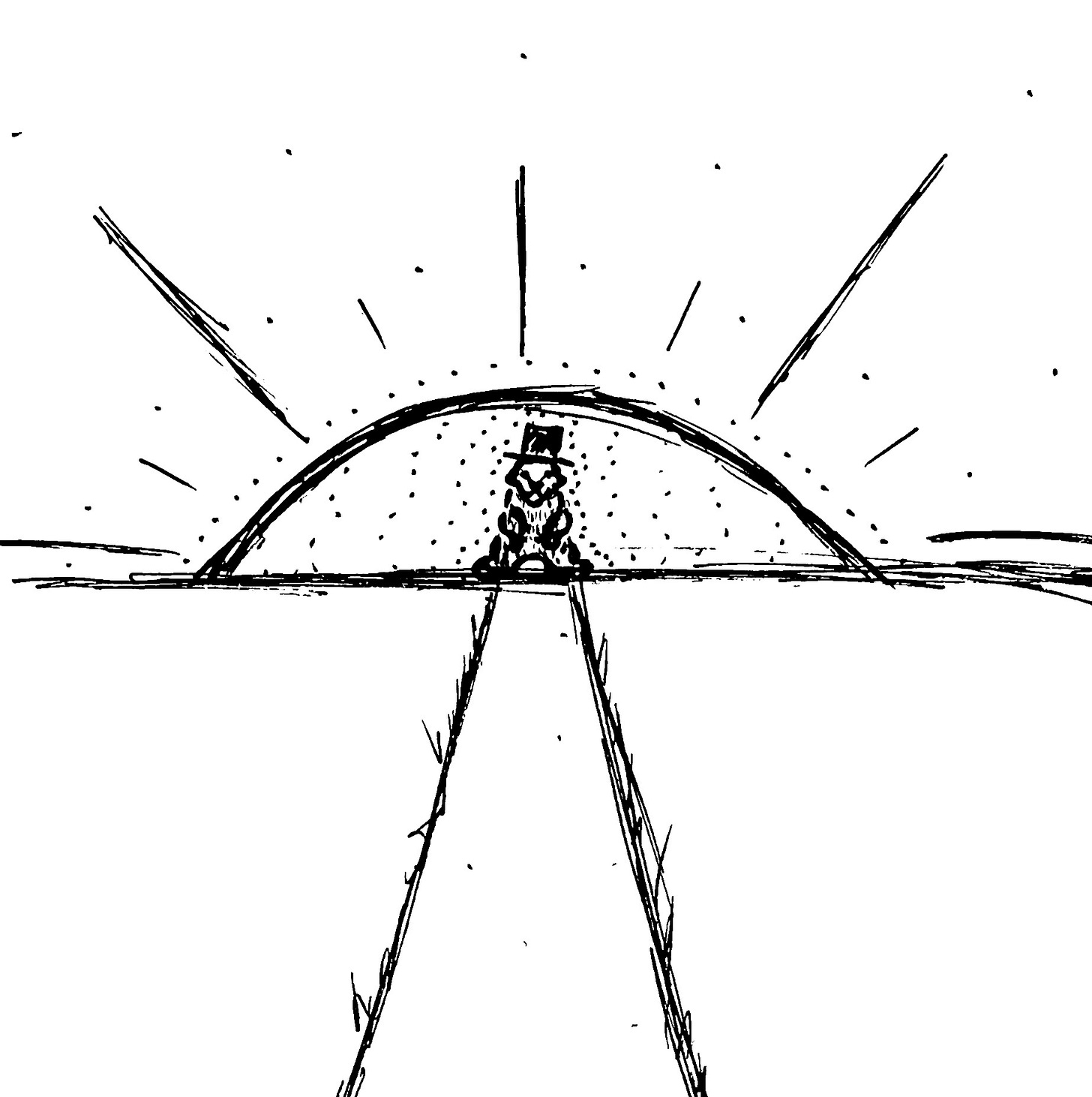Thawing lonely bones
There are over 8 billion kinds of loneliness, and during the first 25 years of my life, I collected them all! I grew up on a radiation mound outside Pittsburgh, the very soil hostile to connection. I’ll tell you too much about my childhood another time, but for now, I just want to alert you to the most dangerous kind of loneliness that I’ve discovered on the belonging frontier: “lonely bones.”
Cat, what are lonely bones? How can I tell if they’re forming?
Usually loneliness is a transient experience, the trough of a wave. Danger comes when we get stuck under too deep for too long. We disengage from pro-social behaviors; our self-worth erodes, our mental and physical health suffer, violence and political fanaticism may develop. Our life aches.
Loneliness becomes internalized as a steady state of being and can even become part of our identity. “I don’t belong anywhere. People suck. I’m just a loner.” (Yes, I did wear a Harley Davidson t-shirt in college that said, “The eagle soars alone.” No, it did not make me feel cool and independent.) It’s then that we have lonely bones. Wherever we go, whomever we meet, we engage from a space of existential non-belonging. This often sabotages anyone’s efforts to help us, including our own.
Thawing lonely bones
Hello, Sun: The first thing to do is literally put your body in sunlight. There are many gateways to befriending our loneliness: through our thoughts and feelings, bodies and environments. Telling people with lonely bones that they’re not alone, that they matter, that they’re special, etc., may fall on frozen ears. Try working from the environment and body first.
Without words, we can connect directly to the most stable, present, and loving force we have (the sun). The sun proves to us, through our skin and into our bones, that we are not alone and are actively being cared for. Yoga’s ancient origins focused on spiritual connection with the natural world as the basis for all other kinds of connection. And scientists have since identified six health benefits of sunlight: kills bacteria, reduces high blood pressure, regulates the immune system, improves sleep, and both boosts mood and strengthens bones!
Hello, Otter: As you’re sitting in the sun, make yourself laugh. Especially if you don’t want to. This is not to be fake or to “bypass” difficult emotions. It is a body-based intervention to disrupt your chemistry and flood your system with mood-boosters that can help you regain perspective and take positive actions towards meeting your social needs. Otters are known as the most playful animals on earth, so perhaps you can start by watching reels of them playing or watch the viral videos of people laughing when they see someone else laughing (due to mirror neurons—laughing is contagious.) Or if you’re a big nerd like me, get into the work of the first “professor of play” at Cambridge, who’s devoted to helping us nurture a childlike mindset.
Hello, Vanishing Point: Sitting in the sun laughing like a maniac, pick up your eyes, and look out on your social environment. Maybe your road feels like it’s been a straight line from social crap into never ending social crap that you’ve lost hope will ever bend. That’s ok. Instead, try becoming the bend in someone else’s road who feels the same way. Find another human to pay attention to. Focus on caring for them in even the smallest way. Say hi to the Amazon delivery person, call your cousin, open the store door for a mom with a stroller, or donate a kidney. Centering someone else re-stabilizes us by giving us agency and purpose beyond ourselves to hook into. We can BECOME that bend at someone else’s vanishing point, which simultaneously becomes the bend in our own social road. No matter how long we’ve been sitting in our lonely bones, we can tap into a secret reserve of care for others that never freezes over.
Sending sunshine-otter-vanishing points from the belonging frontier:)
Cat
P.S.—5 friends to thaw out with:
Sara Ivanhoe, USC’s Director of Yoga, on the four paths of connection through yoga
Pharrell and trapeze artists - thawing out with music
The boy, the mole, the fox and the horse short film- streaming on Apple TV+
Bittersweet by Susan Cain (or her newsletter) - how to hold the loneliness as you thaw
David Hockney - (The Arrival of Spring, Normandy, 2020) on vanishing the vanishing point by helping us take multiple perspectives simultaneously.
GIFT!
Happy Wednesday! Here’s a gift (for personal use!) if you want to do a loneliness scan to both see where loneliness may be inching towards your bones and how to ask helpful questions to those you love about their experience.






